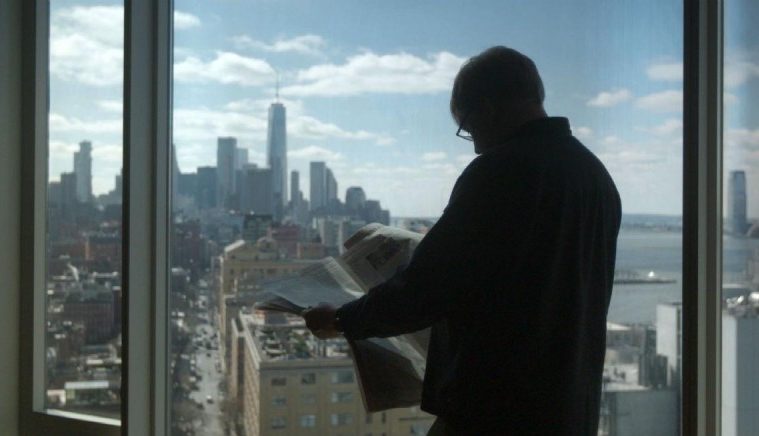Considering the psychological costs of working for a downright corrupt organization concerned with short-term thinking and a risky bottom line, Inside Lehman Brothers offers an approach that not only makes the aptly named Dick Fuld a villain for what he did to the global financial system but also for Lehman’s treatment of whistleblowers in its BNC mortgage division. Directed by Jennifer Deschamps, the documentary simplifies the academic overview offered up by filmmakers like Alex Gibney (Enron: The Smartest Guys In the Room) or Charles Ferguson (Inside Job), and largely focuses on people of good conscious that risk their careers to expose the myriad ways Fuld and company did business. Fuld, shown largely in archival material encourages, to put it mildly, a brutal dog-eat-dog kind of capitalizing where he hopes to inflict pain on those that would sell short what he’s selling.

Sociopaths perhaps attract other sociopaths at Lehman, leading to a claim of sexual harassment and assault at its BNC montage division once whistleblowers like Sylvia Vega-Sutfin start asking questions and insisting on compliance with intern protocols. She discovers rampant fraud in documents submitted by brokers making $10,000 per deal. Lehman’s management in New York is profiting off this fraud, waiting for homebuyers’ subprime payments to double or triple after two years. When the women of BNC start asking questions, a shadowy supervisor is sent in to intimidate these woman speaking out by any needs necessary. The psychological impact of their actions is chilling, even ten years later as Vega-Sutfin and co-workers Cheryl McNeil and Linda Weekes bravely recount on screen.
In New York, we meet Oliver Buddle, a member of the firm’s general counsel who starts to question the morality and legality of transactions, from the subprime practices to the cowboy culture inside the organization all the way to the firm’s Repo 105 workaround: shifting bad assets to their UK division only to sweep them back to the US days after their financial disclosures are made to investors. Buddle, along with SVP Matthew Lee, attempt to shed light on these practices, getting nowhere in the process.

Approaching this material in a very different way that previous documentaries and narrative films (like Adam McKay’s The Big Short and Ramin Bahrani’s 99 Homes), director Deschamps proves there’s thousands of untold angles that have yet to be explored when dissecting the impact of the financial crisis. There is more to say about Lehman, including misconduct in other corners of the company, though Inside Lehman Brothers takes a less aggressive approach. Deschamp’s focus is narrow rather than a work of direct activism that might have seen her confront Dick Fuld. Perhaps he’s had enough of the spotlight already, speaking before Congress and offering hollow apologies for what he claims could not have been foreseen. The stories Deschamp is interested in involve once gainfully employed professionals suffering from PTSD-like conditions, many choosing to live in personal isolation.
Inside Lehman Brothers premiered at Doc NYC.

